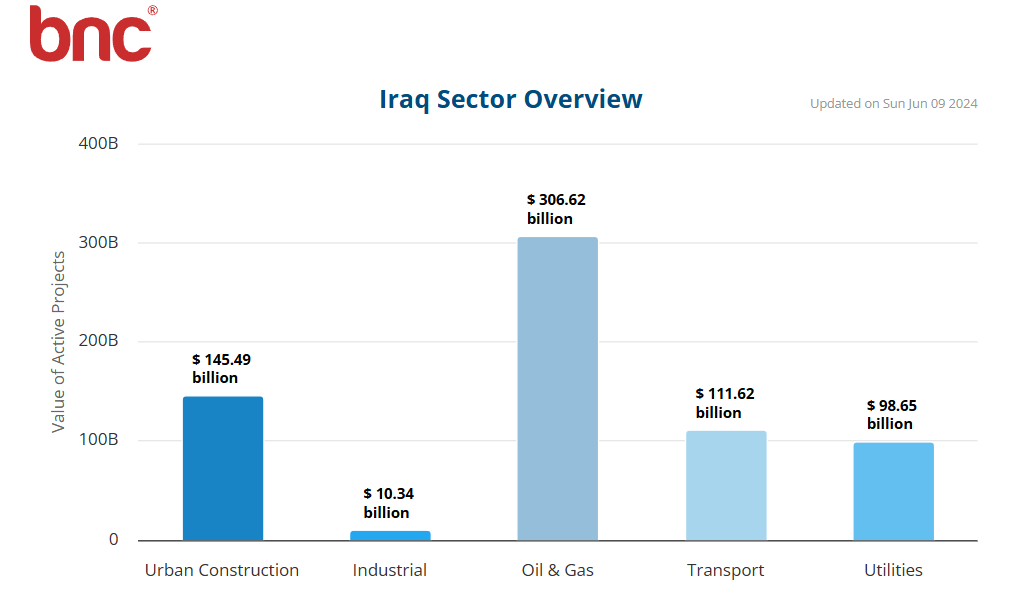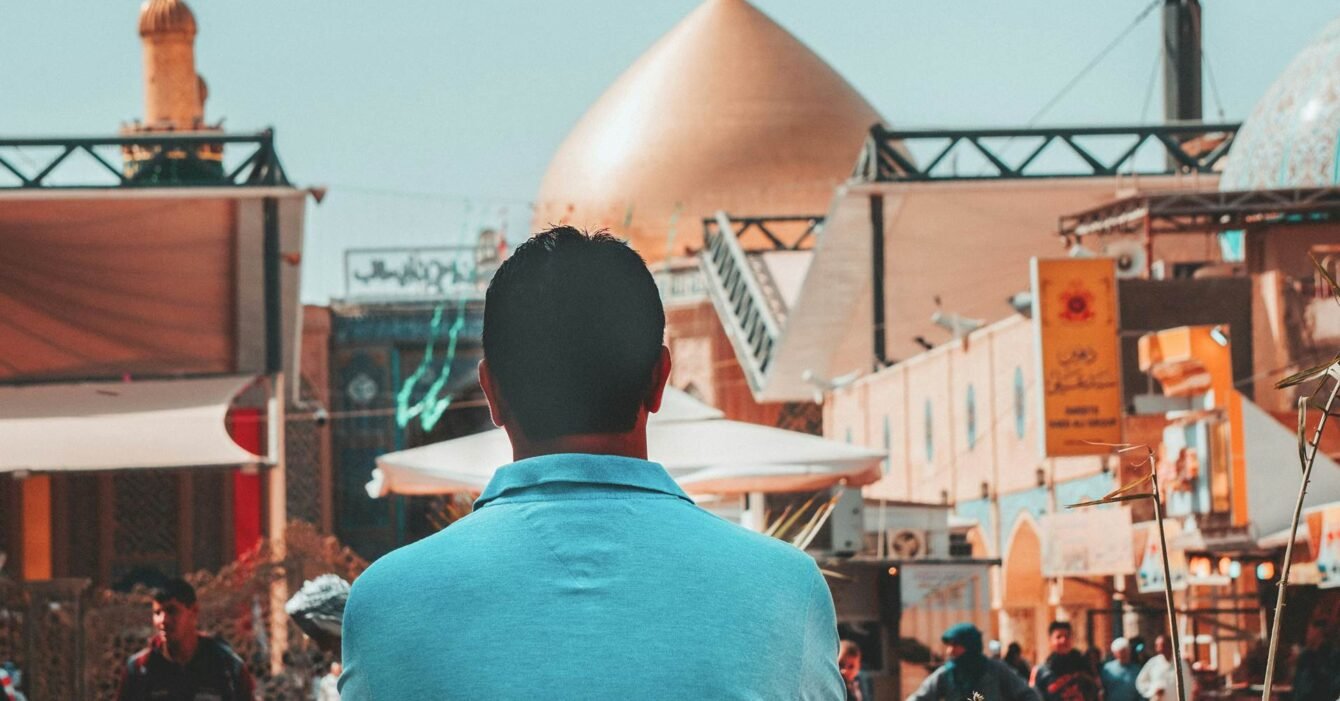Overview of Major Construction Projects in Iraq (2024)
The Iraq construction sector is on the cusp of a significant transformation, propelled by a wave of new projects and government initiatives. As of June 2024, the BNC Tracker Database reveals a staggering 603 active construction projects in Iraq, valued at USD 577.75 billion. This impressive portfolio spans various sectors, highlighting the country’s commitment to rebuilding and expanding its infrastructure after years of conflict and economic challenges. Our team at Iraq Construction Consulting delves into the details, showcasing Iraq’s dynamic construction landscape and its potential for growth.

Sector Analysis
The value of active projects across different sectors is substantial:
- Urban Construction: USD 145.49 billion
- Industrial: USD 10.34 billion
- Oil & Gas: USD 306.62 billion
- Transport: USD 111.62 billion
- Utilities: USD 98.65 billion
The construction industry in Iraq is poised for considerable growth in 2024. This resurgence is largely due to the resumption of infrastructure projects delayed by the COVID-19 pandemic and internal conflicts. New government initiatives in transportation, energy, and oil and gas sectors are set to drive further expansion. With rising oil prices and increased production bolstering Iraq’s fiscal stability, the World Bank anticipates a return to pre-pandemic economic levels. This environment presents lucrative opportunities for firms specializing in construction, engineering, equipment supply, logistics, and maintenance. Joint ventures and strategic alliances are highly encouraged to maximize the potential of this thriving market and contribute to Iraq’s growth narrative.
Top Construction Stories in Iraq
- Development of Iraq’s Second Largest Gas Field
Iraq has signed a deal for the development of the Mansuriyah Gas Field, located in Diyala province near the Iranian border. This field, situated 110 kilometers northeast of Baghdad, is the second-largest non-associated gas field in the region, with an estimated reserve of 4.5 trillion cubic feet of gas and condensate. Covering an area of 110 square kilometers, this project is set to significantly boost Iraq’s gas production capacity.
- Oil and Gas Development Contract
A major contract has been awarded for an oil and gas development project aimed at producing 200,000 barrels of crude oil and 50 million cubic feet of gas per day. The project includes constructing a 200,000-barrel-per-day oil refinery, a petrochemical facility with an annual production of 800 tons of polyethylene and polypropylene, a fertilizer factory, and two power plants generating a total of 1,200 megawatts (800 megawatts from fuel and 400 megawatts from solar energy). This initiative underscores Iraq’s commitment to energy production, manufacturing, and sustainable development.
- Industrial Facility in Southern Iraq
Another significant project involves constructing an oil refinery with a 300,000 barrels per day capacity and a petrochemical complex in Al Faw, near Basra. This initiative aims to strengthen Iraq’s refining and petrochemical sectors, providing training for 5,000 Iraqi personnel and fostering economic growth through local industries and job creation.
- Aviation Hub Development in Dhi Qar
In Dhi Qar province, the construction of a state-of-the-art aviation hub is making notable progress. Set to elevate the region’s connectivity and economic prospects, this project aims to increase the airport’s capacity from 500,000 to 2.5 million passengers annually by 2025. Key developments include expanding passenger terminals, constructing modern cargo facilities, and implementing cutting-edge amenities to enhance operational efficiency and passenger experience.
- Gas Field Enhancement in Basra
A strategic collaboration focuses on constructing an associated gas processing facility with a capacity of 300 million standard cubic feet per day (scf/d) in the southern Basra governorate. This comprehensive project includes building gas gathering stations, processing units, pipeline networks, reservoirs, power generation stations, and an export platform, showcasing Iraq’s commitment to enhancing its gas infrastructure.
Conclusion
The construction landscape in Iraq is experiencing a remarkable transformation, fueled by substantial investments and strategic initiatives across various sectors. For companies and stakeholders involved in the sector, now is an opportune moment to engage with this dynamic market. By leveraging insights from our Iraq Construction Consulting, you can contribute significantly to the country’s rebuilding and development efforts.

